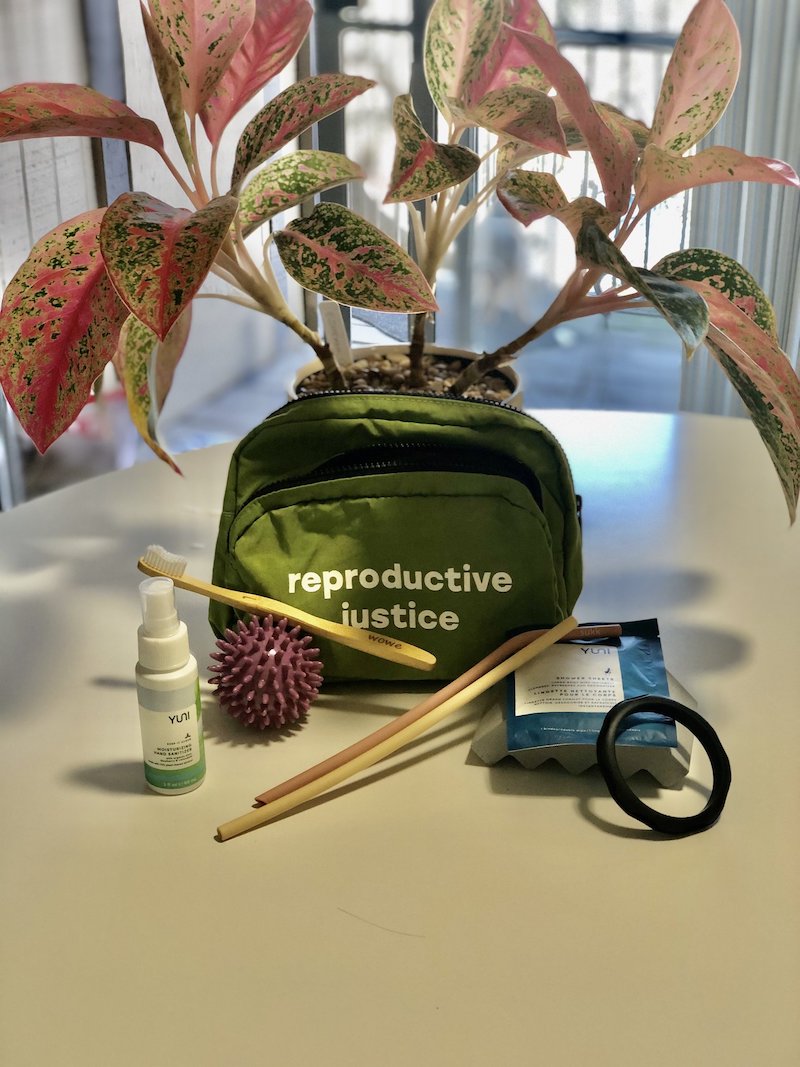When we think about the term self-care, some of us might immediately conjure images of unattainable luxury—the mind drifting to commercialized flashes of spa commercials and perfectly manicured toes.
At DTI, we see self-care (and, as an extension, community-care) as less of an unattainable luxury and more of a mindful practice, a necessary part of the ecosystems we are each engaged in as people who provide support to others.
As doula Annie Kocher said in one of our previous blog posts:
Doula work is a high risk profession. As doulas, we do not ultimately take on responsibility for the outcome of a birth, but we, often more than anyone except the birth giver’s partner, have a deep personal relationship with people’s birthing journeys.
Often, their hopes become our hopes, and their disappointments become our disappointments. Sometimes, their exultation becomes ours; sometimes, we are also receptors of violence done to them.
Much of this will be out of our control, because birth exists in a realm beyond human control. We are subject to it, not it to us, no matter how hard we try sometimes to deny this.
But what is within our control as doulas is our skillfulness in self care. And this can make all the difference. One of the most profoundly important things a mentor ever said to me about birth work was, “it’s your life, too.”
Dear doula, this is your life, too.
— ANNIE KOCHER, DTI BLOG, MARCH 2017
So, for doulas, reproductive heath advocates and birth workers—people who are often actively engaged in community-care, which is the practice of supporting someone else or a number of individuals—self-care can look like many things.
It might look like investing in relationships that are invested in your care and support, too. It might look like healing your own traumas and becoming aware of triggers at work. It might look like compassionate boundaries or paying mind to the business infrastructures within your practice. It can also look like eating good, drinking water, taking breaks, meditating for five minutes or even just taking time to breathe.
Ultimately, self-care can be soothing. Self-care can be undoing. Self-care can be soft, and self-care can be hard.
No matter where you are in your birth work journey, we hope you’re developing habits, mindsets and frameworks that support your work, your community ecosystem and your own families and loved ones.
Here are a few resources at DTI that you may want to explore, too, as you develop your own practice and relationship toward self-care:
1.) Lean on trusted frameworks, like our Slow Doula Method®.

The Slow Doula Method® is a core concept in all DTI doula trainings. We use this framework to stay grounded, pay attention and own our roles as doulas and leaders, especially in times of crisis or moments in which we need to pull from our own sources of endurance and strength.
You can take The Slow Doula Method mini-course for $37 anytime at wearedti.podia.com.

2.) Read books that work to untangle your relationship to self-care.
At DTI, we recommend reading Trauma Stewardship (click here to grab your own copy). You can also plug into this great list of resources on our blog from Annie Kocher (click here to read).
3.) Invest in business infrastructure for your doula or birth work practice that will support your sustainability.
Building a practice that supports you is paramount. Examining the way you engage with clients, run your business, message your brand and establish policies can help you set boundaries, prevent burnout and spend more time on what you love. We recommend the following courses from our library:
- Understand Your Brand ($35)
- The Backup Plan ($35)
- Demystifing Client Meetings ($35)
- Interview Breakthrough ($35)
- The Business Toolkit: The Package Deal (contains all courses listed above, $99)

4.) Set yourself up with some self-care tools that promote healthy routines and recuperation.
Taking care of your body takes a little work, too. In our shop, you can find massage balls, a bath sitz and a vibrator to support post-work healing, pleasure and rejuvenation.
We’ve also got a cross-body birth bag that can help you bring everything you need to take care of yourself during client meetings, birth support and general doula work.
5.) Commit to understanding your identity, the communities you are a part of and your unique capacity to create change.
Understanding our own (or our communities’ and clients’) relationship to racial and gender trauma can help us heal. We have a few resources at DTI that can support identity mapping and challenging oppression.
- This Book Is Anti-Racist ($14.95)
- Birthing Justice ($40)
- Decolonizing At The Root (Free)
- They/Them/Theirs (Free)

